Earth Day: Four ways to reduce your coffee and chocolate footprint
Earth Day reminds us that change doesn't have to wait for sweeping policy or perfect systems. Often, it starts with something as simple—and as...
Vietnam's coffee industry has come a long way, skyrocketing to become the world's number two coffee producer. But this success story has a hidden cost.
To meet the massive demand, farmers turned to monoculture — planting only coffee plants, mile after mile. While it boosted yields initially, it also meant chopping down trees, fragmenting animal habitats and disrupting the delicate balance of nature.
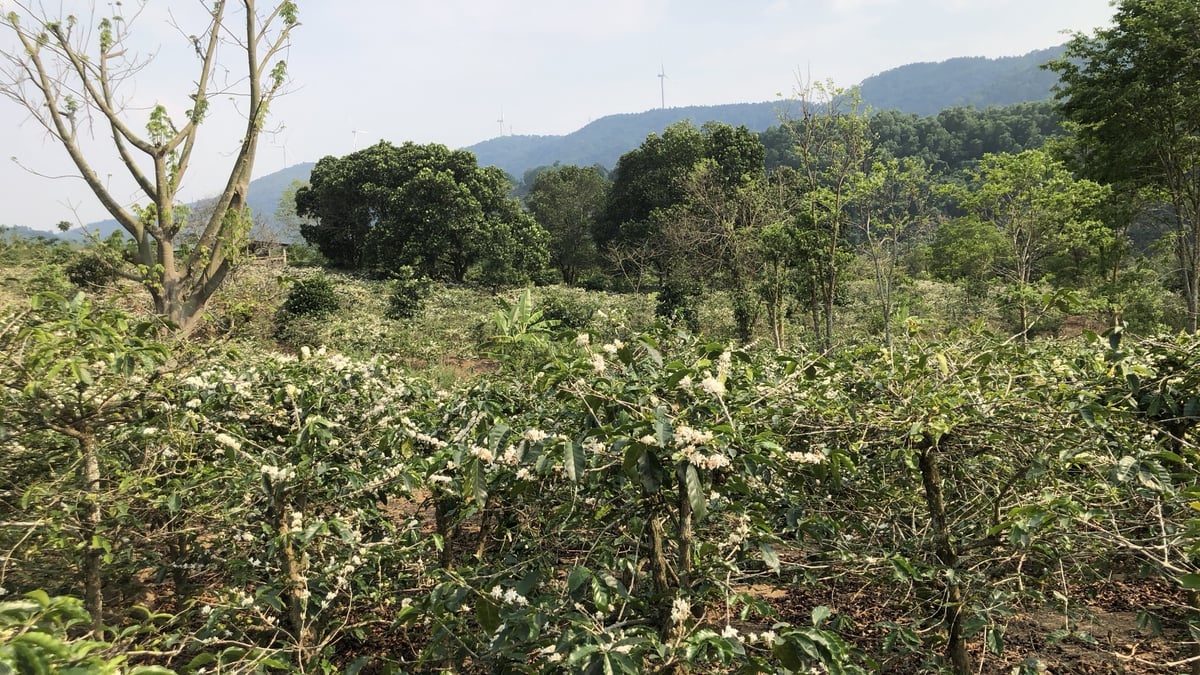
Our project area in Central Vietnam is undergoing transformation into an agroforest © Slow
The consequences are hitting hard. Remember those delicious coffee beans? Turns out, happy animals mean happy coffee plants. Without the natural balance forests provide, soil quality suffers, leading to plummeting yields — bad news for farmers and coffee lovers alike. Erosion becomes a threat and extreme weather events pack an extra punch.
In Vietnam's Central Highlands, coffee yields in Quang Tri province have been steadily declining. Once producing a range of 10-12 tonnes per hectare, farms are now seeing yields drop to just 5-6 tonnes. This decline is likely caused by land erosion and soil nutrient depletion, both byproducts of monoculture farming practices.
Imagine sipping a cup of coffee knowing it helped wildlife and the environment. That's the idea behind a project by Slow, WWF Viet Nam and WWF Finland in Vietnam's Quang Tri province. Our secret weapon? Coffee agroforestry.
Think of lush coffee plantations dotted with shade trees. That's coffee agroforestry! By planting trees alongside coffee crops, this technique mimics natural forests. These "corridors" act like stepping stones for wildlife, allowing animals to move freely between protected areas. This not only helps endangered species like monkeys and gibbons but also keeps the whole ecosystem healthy.
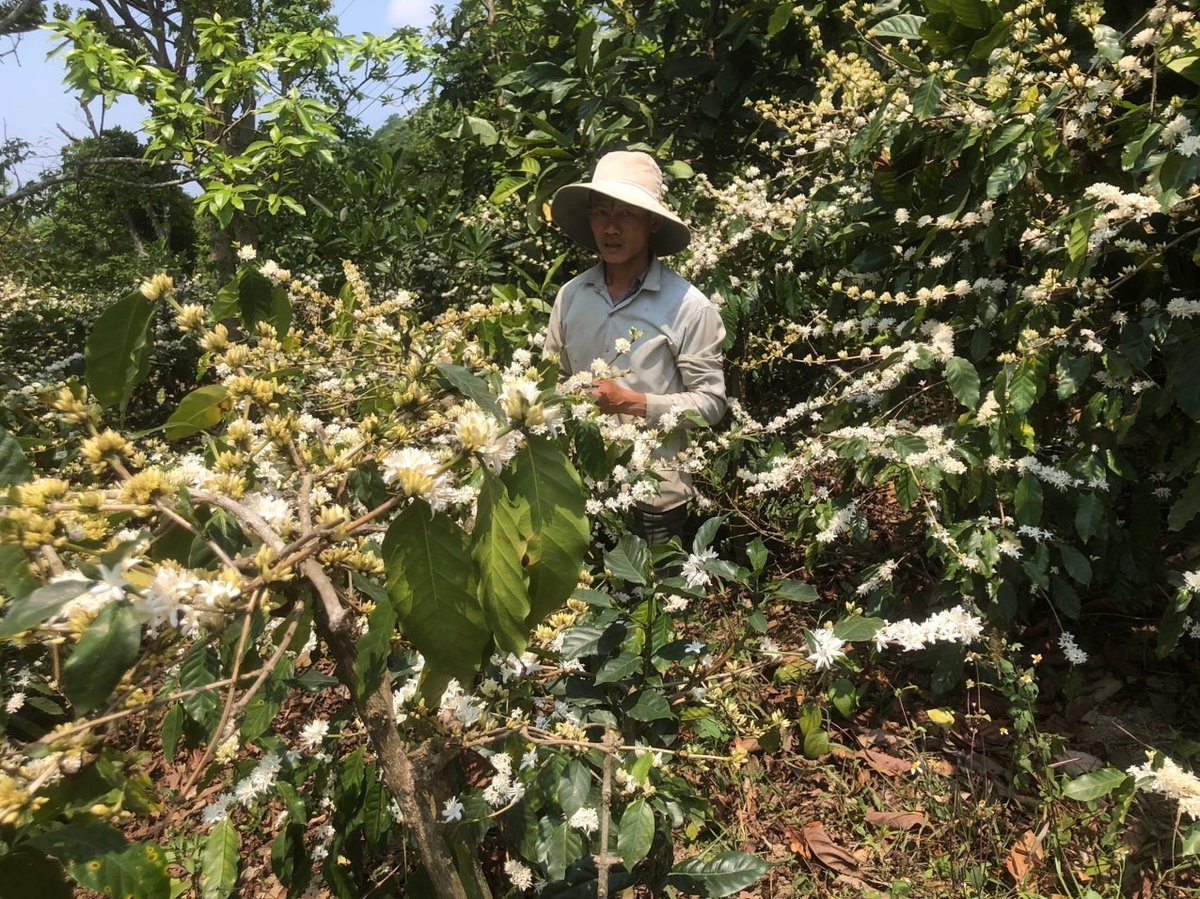
Beautiful bloom, a sign of a healthy harvest to come at our project farm in Central Vietnam © Slow
But it's not just about the animals. This project empowers local communities too. Over 2,000 smallholder farmers are learning sustainable farming practices that combat land erosion and boost coffee yields. This translates to higher incomes and a more secure future for these farmers.
The Prosperous Farmers and Forests Partnership, funded by the Danida Green Business Partnership (DGBP), aims to transform a massive area - 2,500 hectares of land currently under monoculture farming—into thriving agroforestry. This community-corporate partnership, led by Slow and WWF, focuses on building sustainable, resilient and inclusive forest economies in Vietnam. In addition to the agroforestry conversion, the project will restore 18,000 hectares of natural forest, further strengthening wildlife corridors between the Bac Huong Hoa and Dakrong Nature Reserves.
Think about the journey those beans took. By supporting sustainable coffee practices like agroforestry, you can be part of the solution - ensuring a delicious cup that benefits both people and the planet.
With every sip, we can brew a brighter future for Vietnam's coffee, wildlife and hardworking farmers.
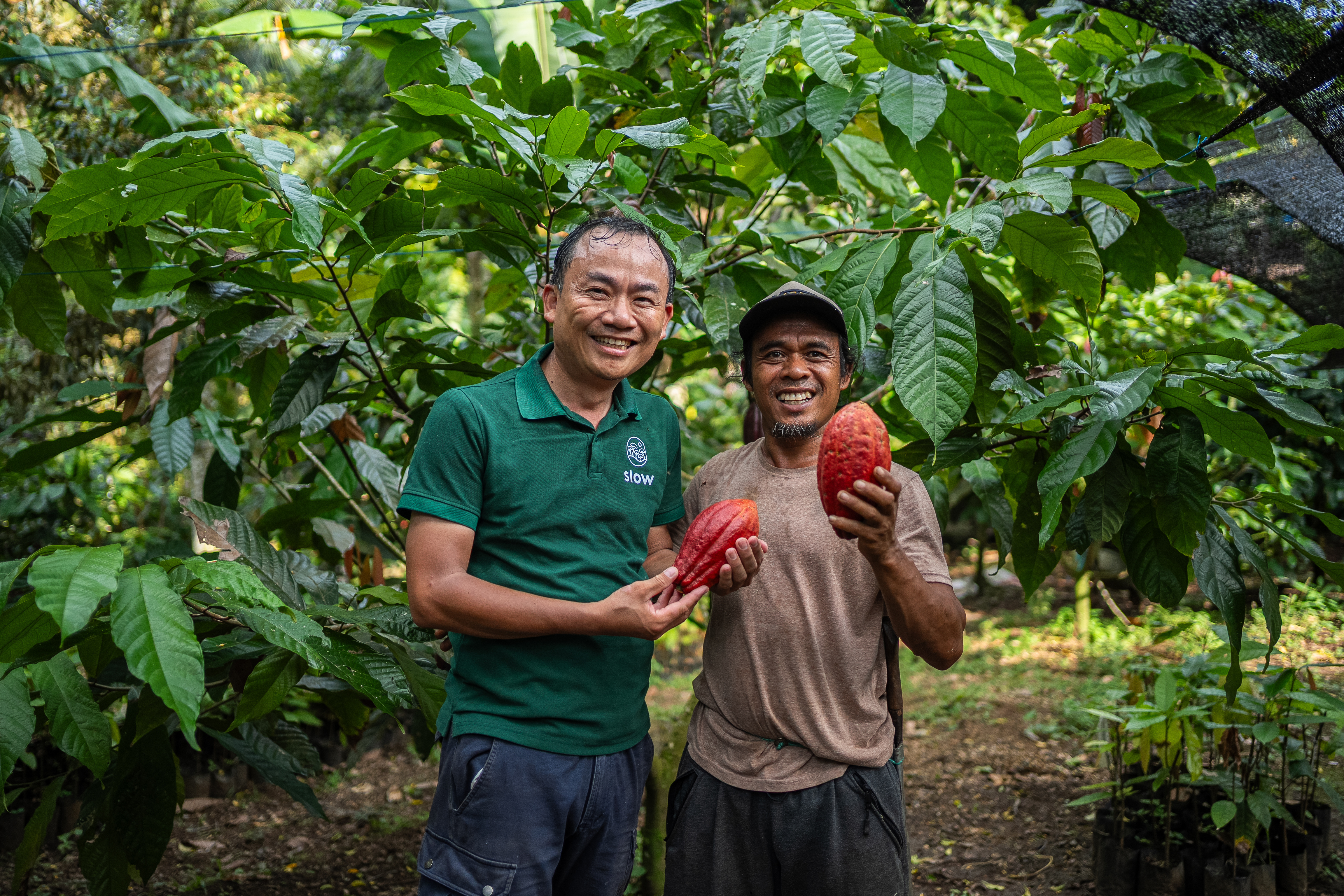
Earth Day reminds us that change doesn't have to wait for sweeping policy or perfect systems. Often, it starts with something as simple—and as...
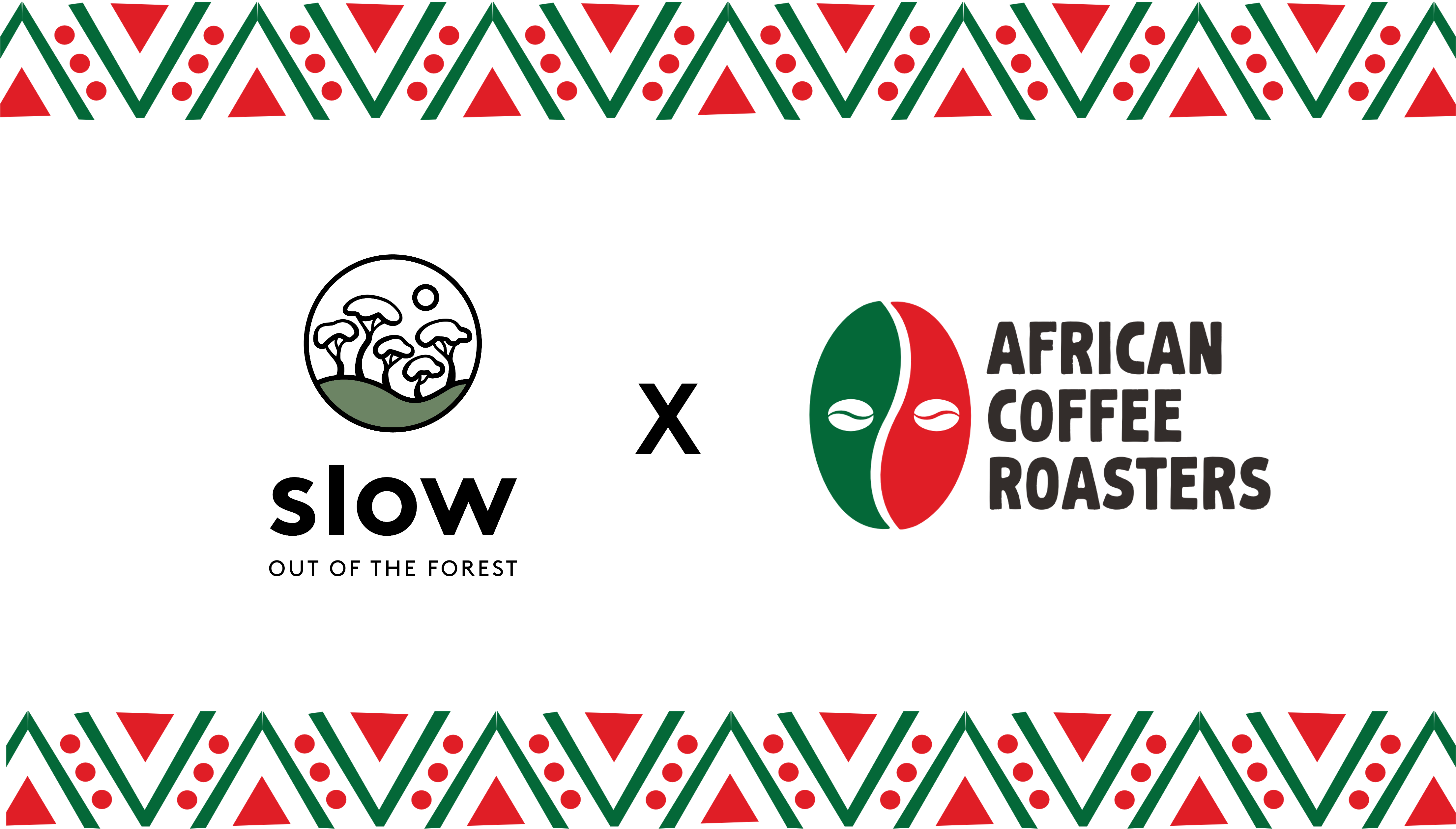
Big news from Slow. African Coffee Roasters is now part of the Slow family. And this isn’t just an acquisition—it’s a major step forward in how...
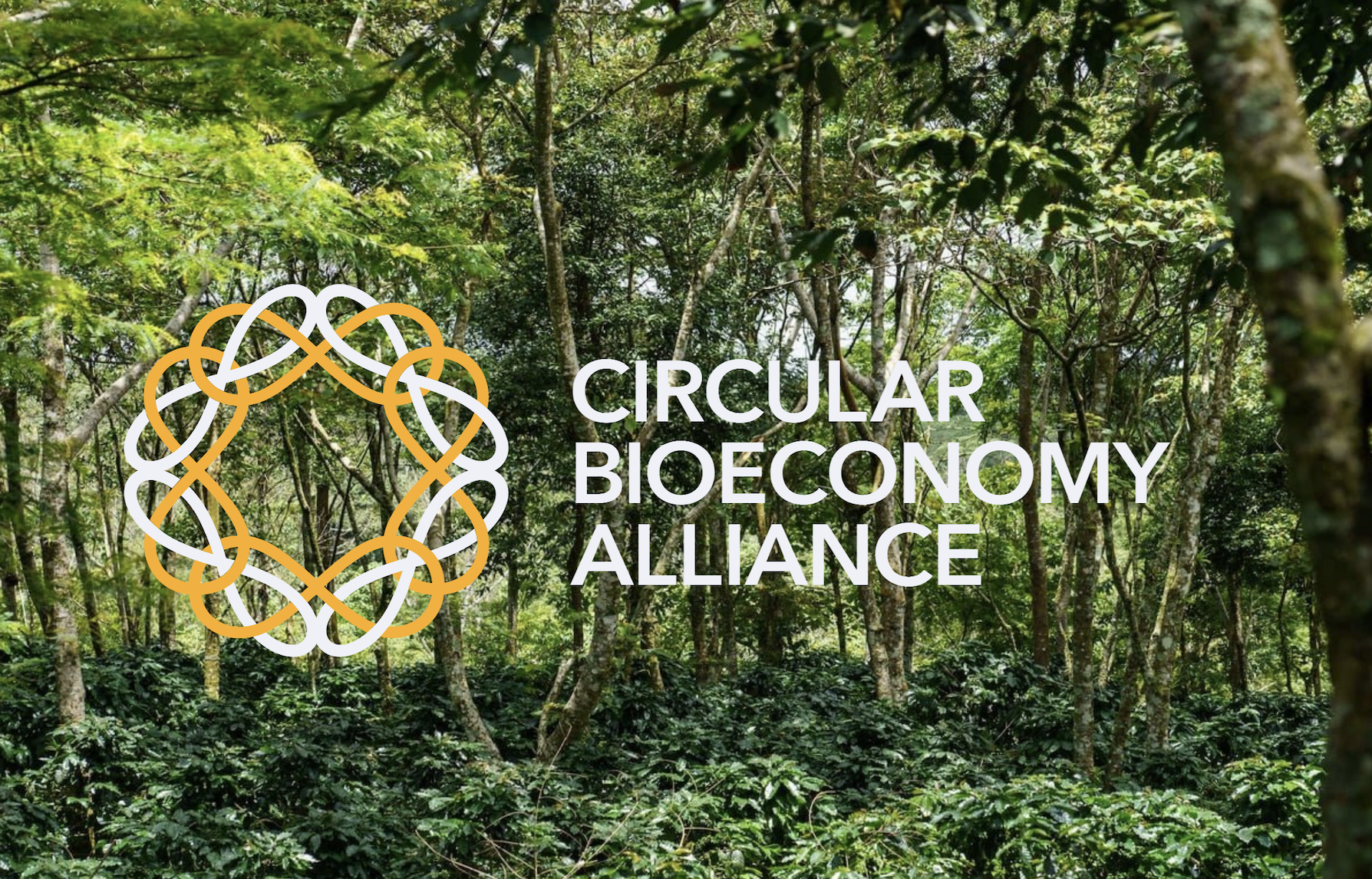
A few years ago, coffee and chocolate were just products. But at Slow, we’re changing the story. We’re not just selling beans and cocoa, we’re...